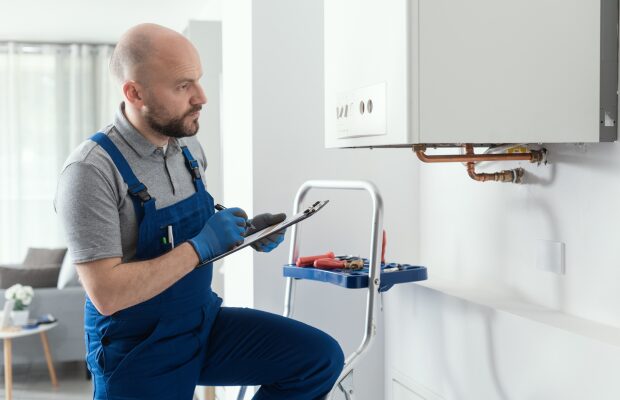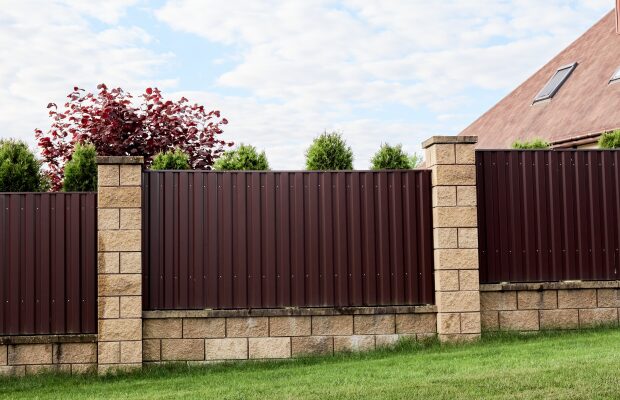Saving a deposit is often the hardest part of buying your first home.
According to Halifax, the average first-time buyer deposit in the UK rose to £59,000 in 2021.
This means you would need to save in the region of £1,200 every month to reach that figure in four years.
However, there are options available to you and a whole host of ways you can speed up the process of saving your deposit.
This guide explains everything you can do…
How much will I need to save?
In most cases, you’ll need to be able to provide at least a 10% deposit to buy your first home.
So, if the property you want to buy
has a purchase price of £130,000, you’d need to have at least a £13,000 deposit.
To save that kind of deposit in three years, you’d need to put by £361 per month.
If you earned the UK’s average salary of £26,000, your take-home monthly pay would be in the region of £1,780 – meaning you’d need to save around 20% of your monthly wage.
What is the fastest way to save for a house deposit?
The quickest way to save a deposit for a house is to cut out as many of your biggest monthly expenses as possible.
If moving back in with parents is an option, this could help you save your deposit much faster.
Even if you’re helping to cover costs at the family home each month, it’s highly likely your monthly expenditure will be much lower than if you were renting a property.
The money you save can go straight into your savings and if you stick to your plan, living back at home can be a temporary thing before you’re finally able to get that first foot on the property ladder.
The bank of mum and dad
Gifted deposits are becoming more and more common as parents look to help their offspring on to the property ladder.
A gifted deposit is an amount of money given to you as a property deposit that doesn’t need to be returned.
The most important thing to remember with gifted deposits is that they can’t be loans – if your parents expect the money back at any point, it will be classed as a loan and will therefore affect your mortgage borrowing ability.
If a gifted deposit or moving back home to save aren’t realistic options for you, however, fear not.
Here are 10 other things you can do to help you save your property deposit much faster…
1. Cut back on your monthly expenditure
Take a look at your monthly bank statement online.
How much do you spend each month on luxuries like shop-bought coffee, or lunch when you’re at work?
You might be surprised by the total monthly figure on items you could probably do without.
A study by Nationwide revealed the average cost of working in an office was £7 per day – over a 261-day working year, that equates to a huge £1,827, with £230 of that spent on coffee, tea and treats.
Switch to taking a flask of homemade coffee to work alongside some lunch and put the monthly saving you make straight into your deposit savings account.
2. Sell your car
According to Kwik Fit, the average monthly cost of running a car in the UK is £162.
That’s almost half of the £361 a month you’d need to put away to save a £13,000 deposit in three years.
If you’re able to get where you need to be without requiring a car, the savings you could make are huge.
On top of that, if you have a car you can sell, you’ll be able to put what you make straight into your property deposit savings, perhaps reducing what you’d need to save each month to hit your target.
3. Assess your subscriptions
We’re living in a subscription society.
TV, music, food, beauty, and fitness are all hugely popular subscription services.
In fact, according to Barclaycard, we spend an average of £552 every year just on subscriptions.
Look at your own subscription costs and assess what you want to keep and what you could realistically lose to reduce your monthly spend.
4. Make the most of cashback
By earning money on the things you still need to spend on, you’ll be able to give your deposit savings a welcome boost.
Loyalty cards can help you to save money on your regular monthly expenses, such as food, while a cashback credit card could be a great way to earn money.
However, to fully get the benefits of a cashback card, you’d need to use it for all your everyday expenses and pay off the balance of the card each month.
Otherwise, the interest you’ll need to pay could outweigh what you earn through cashback.
By using the card and paying it off each month, you’ll also improve your credit score ready for when you can apply for your first mortgage.
5. Plan quarterly ‘savings blasts’
If you find cutting back on your monthly expenditure tough, you could plan a quarterly savings ‘blast’ four times a year.
This would see you save as much of your monthly salary as possible for one month each quarter – leaving enough cash for only your essential monthly expenses.
You should only do this if your comfortable doing so, but it can be a good way to save while also enjoying some luxuries during the other months of the year.
6. Consider downsizing your rental
While moving back home is often the fastest way to save a property deposit, it may not be an option for you.
But if paying rent is impacting on how quickly you can save, you could consider reducing the amount you spend on rent if possible.
That could mean moving to a cheaper area, or a smaller rental property.
Or you could look at renting a room in a House of Multiple Occupation (HMO).
HMOs are shared living properties and as well as cheaper rent and inclusive bills, they can also be great ways to meet new people and make new friends.
7. Use a home buying scheme
If saving a 10% deposit or more looks out of reach for you, you could consider a government home-buying scheme.
Help to Buy equity loans
Help to Buy is the most common scheme and allows first-time buyers to purchase a new-build home with only a 5% deposit.
The rest of the purchase price is then covered by a 20% government equity loan and a 75% Help to Buy mortgage.
The equity loan is interest free for the first five years.
Shared Ownership
With Shared Ownership, you’re able to buy a share in a property and then pay a lower-than-average rent on the remaining share.
For example, you could buy a 25% share in a property, meaning your deposit requirement and mortgage would be lower. You’d then pay rent on the 75% you don’t own.
Over time, you can buy more shares in the property, known as ‘staircasing’, eventually owning 100% of the property if you wish.
The 95% mortgage guarantee scheme
To encourage more lenders to offer mortgages to buyers with only 5% deposits, the government launched a scheme that sees them guarantee a portion of those mortgages.
That means, should a buyer get into difficulty paying back their mortgage, the lender’s interests would be protected.
Several high-profile lenders are offering these mortgages, although you should always factor in the high 95% loan to value before buying and seek independent financial advice.
8. Save into a Lifetime ISA
Saving your property deposit into a Lifetime ISA could see you earn more from your money than in a traditional savings account.
With a Lifetime ISA, your savings will be tax-free, and the government will add a 25% bonus to your savings pot.
Lifetime ISAs mean you can:
- Save up to £4,000 a year tax-free
- Receive an annual bonus of £1,000 if you save the maximum amount
- Use the money as a deposit on a property costing £450,000 or less
So, if you saved £4,000 every year for five years, you’d receive a £5,000 government bonus – meaning your total ISA deposit savings would be £25,000.
9. Make savings by switching
How much do you spend every month on utility bills like electricity, gas, water, mobile phone, and broadband?
And how much could you save by switching providers?
Competition for customers is incredibly high for providers of these services, so there are always offers and incentives if you switch.
Log on to a price comparison website and see how much you could save – then put those savings directly into your property deposit pot.
10. Consider buying with a friend
They say two heads are better than one and when it comes to buying a property, purchasing with someone else can make a huge difference financially.
Property purchases with friends or siblings are becoming more common and can be a great way to combine saving power and incomes to purchase a great home.
However, if one of you wants to move out at any stage, perhaps because of meeting a new partner, things can become complicated, so always seek legal advice before buying.
Further reading…
Everything you need to know about gifted deposits







